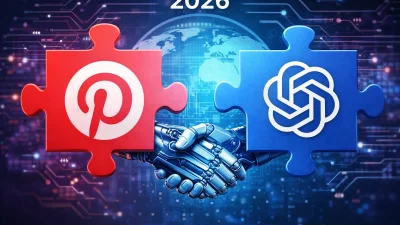AI Automation and Tech Jobs: 25% of Entry Roles Disappearing
It’s official—AI automation and tech jobs are no longer the perfect match they used to be. A recent report reveals that 25% of entry-level tech roles have already been eliminated due to automation in 2025. And that’s just the beginning.
With generative AI, LLMs, and low-code tools accelerating faster than hiring pipelines can adapt, young professionals entering the tech space are facing a sobering new reality: their first job might not exist anymore.
The Shrinking Entry-Level Landscape
For years, junior developer roles, QA testers, and data labeling jobs served as gateways into the tech industry. These positions offered hands-on learning and a bridge between education and real-world application.
Now, AI can do much of that grunt work. Automated code generation tools like GitHub Copilot, testing suites powered by machine learning, and AI data cleaners are replacing what used to be “starter” tasks.
In fact, new data shows:
- 25% of entry-level tech roles are already gone
- Nearly 50% of junior roles are flagged as “at risk” in the next 2 years
- Hiring managers increasingly favor multi-disciplinary or mid-senior hires
What’s Driving This Shift?
The rise of AI is only part of the story. The convergence of factors includes:
- Productivity pressure: Startups want fewer people, more output
- Tool evolution: LLMs like ChatGPT-5 are now “junior devs in a box”
- Economic uncertainty: Companies hesitate to train entry-level hires
Companies are automating not just tasks, but entire junior workflows.
What Does This Mean for Aspiring Tech Professionals?
If you’re trying to break into tech, this may sound discouraging—but it’s not all doom and gloom. It just means the game is changing. Here’s how to stay relevant:
1. Learn AI-augmented skills
Don’t fight the tools—learn to use them. Knowing how to prompt AI effectively, review and debug LLM-generated code, or integrate APIs will be critical.
2. Build your own projects
Skip the resume black hole. Demonstrate your skills with personal projects, open-source contributions, or freelance gigs. Real-world proof beats academic credentials.
3. Go full-stack—or multi-stack
Specialists are still needed, but full-stack developers, tech generalists, and no-code/low-code operators are more valuable than ever in lean teams.
4. Learn to communicate, not just code
AI can write functions, but it can’t replace human understanding, business context, or empathy. Sharpen your soft skills—they’re automation-proof (for now).
How Companies Can Responsibly Adopt AI
While efficiency is great, companies must balance automation with inclusion. That means:
- Offering mentorship and upskilling opportunities
- Creating hybrid roles where humans and AI collaborate
- Not eliminating talent pipelines that sustain future growth
AI should augment human work—not erase the path for the next generation.
Final Thoughts
AI automation and tech jobs are on a collision course, and it’s reshaping what it means to start a career in this industry. While 25% of entry roles may be disappearing, new opportunities are also emerging—just in different forms.
The question isn’t whether AI will change your job. It’s whether you’ll adapt fast enough to shape what comes next.



